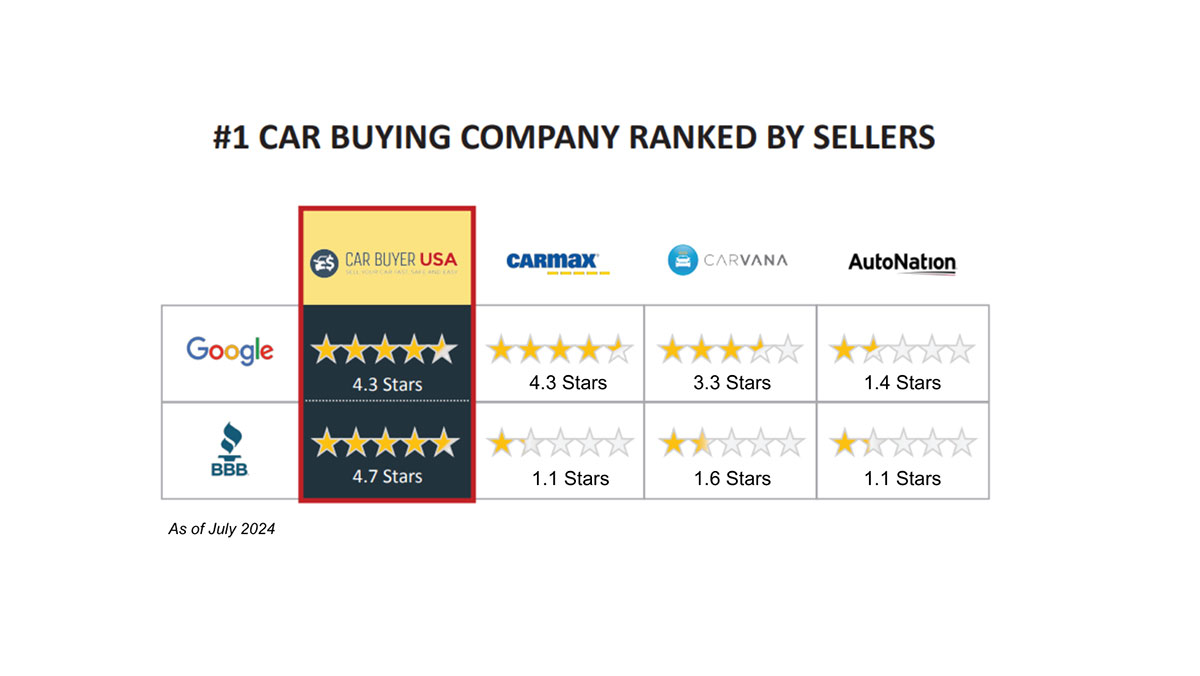
When it comes to selling a car, there are many components which influence resale value. Among the most important are geographic location and market demand. Understanding how these elements impact pricing can help sellers make informed decisions and maximize their return when it's time to sell and Car Buyer USA is here to steer you in the right direction.
Geographic location plays a major role in determining the resale price of a vehicle. Different regions have unique climates, road conditions, and consumer preferences that can affect the desirability of certain vehicles. For example, in areas with harsh winters, all-wheel-drive and four-wheel-drive vehicles are often in higher demand because they offer better traction on snow and ice. In contrast, in warm, coastal regions, convertibles and fuel-efficient cars are typically more popular. This regional preference can significantly affect how much a seller can get for a vehicle. Weather conditions also influence the longevity and condition of a car, further affecting resale value. Vehicles that have spent their lives in dry, warm climates, such as the Southwest, generally experience less rust and corrosion than those in the Northeast, where salted roads in winter can cause significant undercarriage damage. Buyers in rust- prone areas may be willing to pay a premium for a vehicle from a region with a milder climate.
Another way location impacts resale value is through local fuel prices. In areas where gas prices are consistently high, smaller, fuel-efficient vehicles tend to hold their value better because of their lower cost of ownership. On the other hand, in regions where fuel prices are lower, larger trucks and SUVs may retain their value more effectively, as drivers are less concerned about fuel economy. Market demand is just as crucial in determining a vehicle’s resale price. The basic principles of supply and demand play out in the automotive market like any other. If a particular make and model is in high demand but low supply, its value will increase. Conversely, if a market is saturated with a specific vehicle type, its resale price will likely be lower. Consumer trends and preferences evolve over time, impacting what cars sell for the most money. For instance, electric vehicles (EVs) are becoming more desirable in urban areas with developed charging infrastructure and incentives for eco-friendly transportation. However, in rural areas with fewer charging stations, traditional gas-powered vehicles might still command a higher resale price.
Certain brands and models hold their value better due to their reputation for reliability, performance, and overall cost of ownership. Brands known for dependability, such as Toyota and Honda, often see stronger resale values than brands with higher maintenance costs or less favorable reliability ratings. Similarly, specialty vehicles, such as off-road trucks or luxury SUVs, may retain their value better in regions where they are more practical or sought after. Mileage and vehicle condition also influence demand. Lower- mileage cars generally sell for more, as they suggest less wear and tear. Additionally, a well-maintained car with detailed service records can command a higher price, as buyers are more confident in its reliability. Cars with accidents or visible damage may struggle to attract buyers or sell for significantly less.
Economic conditions in a given region also shape demand. In booming economies where people have more disposable income, the demand for newer, high-end vehicles may increase, allowing sellers to fetch a better price. In contrast, during economic downturns, buyers may gravitate toward more affordable, fuel-efficient options, impacting the resale value of larger or luxury vehicles. To maximize a car’s resale price, sellers should research the specific trends in their area. Checking online marketplaces, dealership trade-in values, and auction results can provide insights into what similar vehicles are selling for. Timing the sale can also make a difference; for example, selling a convertible in the summer will likely yield a better price than trying to sell one in the middle of winter.
Ultimately, geographic location and demand are key factors in determining how much a car is worth in the resale market. Understanding these influences can help sellers set realistic expectations and take strategic steps to get the best possible price when it’s time to part with their vehicle.


